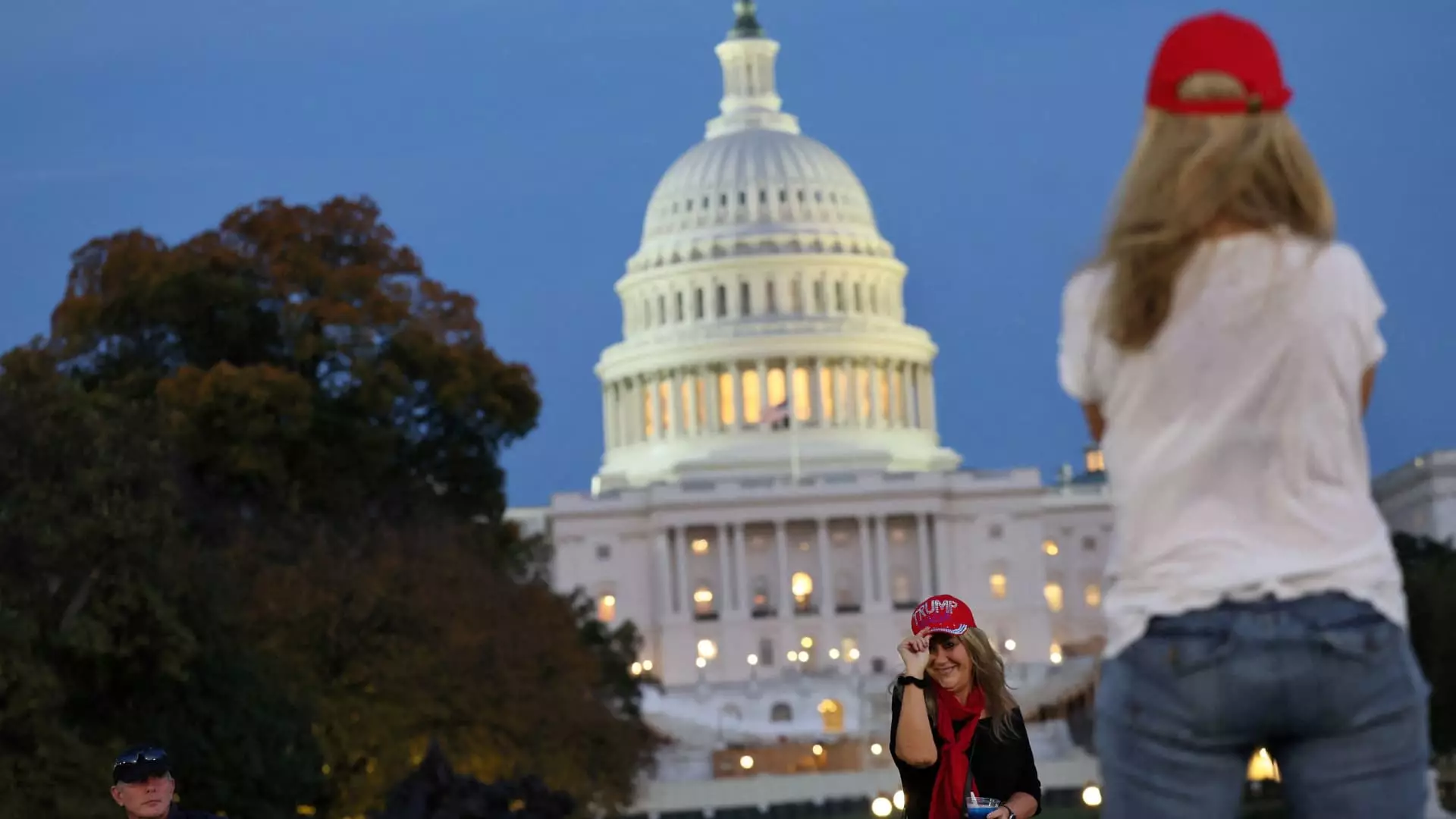As we move forward in a post-election landscape shaped by Donald Trump’s presidency, individual investors are seeking guidance on the potential impact of his administration on financial markets and investments. The recent spike in market indices, highlighted by the Dow Jones Industrial Average surpassing 44,000, indicates a bullish sentiment among investors. Yet, the nuances of long-term financial strategies suggest a more measured and cautious approach should be in play.
Market Response: An Initial Surge
The favorable reaction of the markets to Trump’s election win raises questions about the sustainability of this momentum. While many interpreted the rally as a clear endorsement of Trump’s policies, seasoned financial advisors warn against conflating short-term market performance with long-term economic stability. “Markets thrive on clarity,” emphasizes Jude Boudreaux, a certified financial planner based in New Orleans. The initial market surge could be attributed to the relief of a definitive election outcome, rather than a blanket approval of all of Trump’s policy proposals.
According to experts like Lee Baker of Claris Financial Advisors, the prudent course of action is to adhere to sound financial plans that align with individual goals and risk tolerances. As Baker notes, wholesale changes in investment strategy merely due to election outcomes may lead to missed opportunities or unnecessary risks.
Proponents of Trump’s presidency suggest that his administration may foster faster economic growth due to anticipated market-friendly policies. Stacy Francis, CEO of Francis Financial, outlines a prevailing expectation among investors that Trump’s approach will positively influence sectors traditionally deemed important for economic expansion—energy, finance, and industrial stocks may be particularly buoyed by a reduction in regulatory constraints.
However, financial experts advise caution: while some market sectors may indeed see a boost, individual allocation strategies should remain grounded in personal circumstances. Marguerita Cheng, CEO of Blue Ocean Global Wealth, articulates the importance of focusing on personal financial goals rather than getting swept away by political tides. “Individual circumstances should guide investment decisions,” Cheng asserts.
The Tax Landscape: Potential for Change
The potential for tax reforms under Trump’s leadership is another critical aspect that investors are closely monitoring. Experts note that the Tax Cuts and Jobs Act, enacted during Trump’s first term, introduced significant changes to tax legislation that culminate in 2025. There are certainly expectations that Trump’s reelection could lead to an extension or modification of these taxes, which could further stimulate economic activity through lower tax rates.
Francis emphasized that tax cuts are often viewed favorably by market participants, as they can enhance disposable incomes. “Expectations for faster economic growth may contribute to a higher stock market,” she suggests. However, there is also skepticism about potential tax policies still in their infancy. David Haas of Cereus Financial Advisors cautions against premature assumptions surrounding proposed tax changes, specifically those surrounding issues like Social Security.
While Trump’s policies may lead to short-term economic boosts, seasoned analysts express concern regarding inflationary pressures that might arise as a consequence. The introduction of tariffs coupled with increased disposable incomes may lead to elevated prices for goods and services—a reality that could inadvertently alter the Federal Reserve’s interest rate framework. If inflation begins to trend upwards, the Fed’s previous strategy of lowering interest rates could shift dramatically, impacting borrowing costs and investment dynamics.
The gradual progress toward achieving a stable 2% inflation target, outlined by the Federal Reserve, may become more complex under Trump’s administration. Each proposed pro-business policy could shift financial paradigms, leading to reactions across the broader economy that could create longer-term risks for investors.
While excitement surrounding Trump’s election has spurred markets to new heights, the potential long-term effects on financial planning and investment strategies merit careful consideration. Investors are urging a wait-and-see approach, while remaining adaptable to changes in the economic landscape. Straying from established financial goals in the wake of political outcomes could lead to miscalculations. Thus, the mantra remains clear: assess your individual financial situation and establish a strategy based on sound principles, not merely political sentiment. As the market reacts to unfolding events, maintaining a balanced perspective will be paramount for individual investors seeking to navigate the complexities of a changing financial environment.

